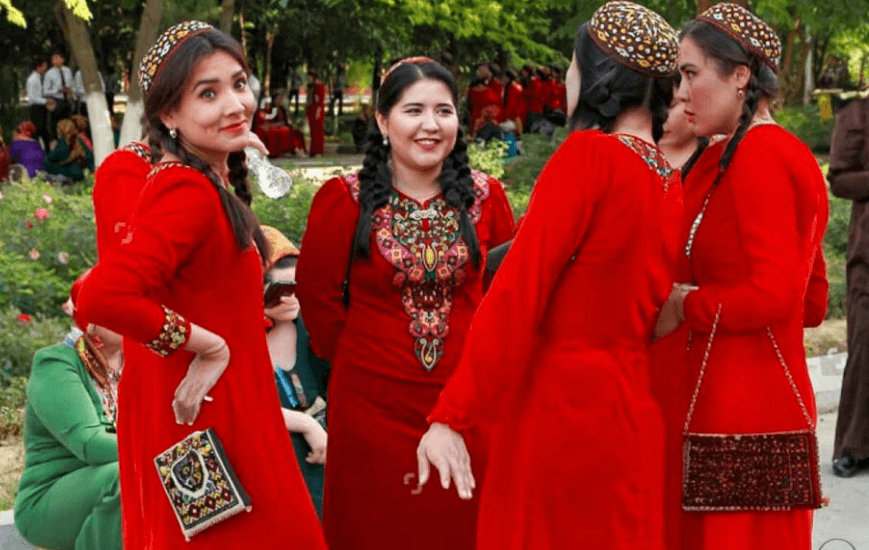In Ashgabat, the capital of Turkmenistan, unmarried women recently learned that they were meant to wear yellow headscarves to work.
When they asked their employers why, they were only told that the order came “from above.” Married women, meanwhile, have been instructed to wear yellow dresses — with the warning that if they don’t, they’ll lose their jobs.
These offbeat dress codes, issued in early March, are the latest in a succession of unwritten yet strictly enforced rules in Turkmenistan, where unofficial decrees often carry the weight of law.
Although there are no formal legal documents outlining the new dress codes, their violation can be severely punished.
The trend is not new in Turkmenistan. Citizens have been exposed to an increasing array of arbitrary aesthetic dictates over the years: cars in the capital are required to be white or light in color, air conditioners have been removed from the fronts of buildings, and women are encouraged to wear traditional dresses.
Men are also under the same restrictions — including a de facto ban on beards, with young men being required to be clean-shaven, a practice also adhered to in other Central Asian states.
“These ‘regulations’ aren’t based on official legislation,” Slavomir Horak, an expert on Central Asia at Charles University in Prague, said in an interview with RFE/RL. “They’re most often simply informal instructions or statements by the president or somebody close to the presidential family, but officials treat them as direct orders.”
Turkmenistan is now led by President Serdar Berdymukhammedov, who took office in March 2022. His father, Gurbanguly Berdymukhammedov, had been president since 2006 and remains widely believed to wield immense influence behind the scenes.
On election day, Serdar’s visit to the polls in a car with license number “72 97” — later replicating his official vote tally of 72.97% — caught observers off guard.
These unofficial directives are not limited to dress code. For example, the country saw the wholesale removal of satellite dishes after former President Gurbanguly Berdymukhammedov publicly condemned them for “spoiling the appearance” of cities. The comment was enough for the local powers to act as if an official directive had been issued.
The new dress code has angered numerous women, although most are too afraid to speak out in public. “When will it end? When will this humiliation of women’s dignity end?” one woman told RFE/RL’s Turkmen Service on condition of anonymity.
Women who work for the state have already been banned from wearing makeup, tight-fitting clothes, and dyeing their hair blonde in previous decrees.
Attempts by RFE/RL to get comment from the Women’s Union of Turkmenistan on the new headscarf rule were unsuccessful.
Horak says such aesthetic regulations have their roots in the Soviet mindset, but under the Berdymukhammedov dynasty, they’ve been ramped up. “This tendency reached its peak under the current dynasty,” he said.
As for why yellow specifically was picked, there is no word. Some speculate the color is simply a favorite of Gurbanguly Berdymukhammedov’s wife and sisters, but this is not certain.
Despite some limited reforms under Serdar Berdymukhammedov — including modest attempts to deal with forced labor in the cotton industry and the release of census data — Turkmenistan remains one of the world’s most oppressive and closed countries. Outside of its sparkling capital and luxury resorts, poverty remains widespread.
Although reliable statistics are difficult to obtain, the average income in this natural gas-rich nation is estimated at around $2.40 a day — less than one-fourth of the average in neighboring Kazakhstan — attesting to the deep economic challenges of the common Turkmen citizen, even as the government tightly controls their lives and clothing.







Leave a Reply